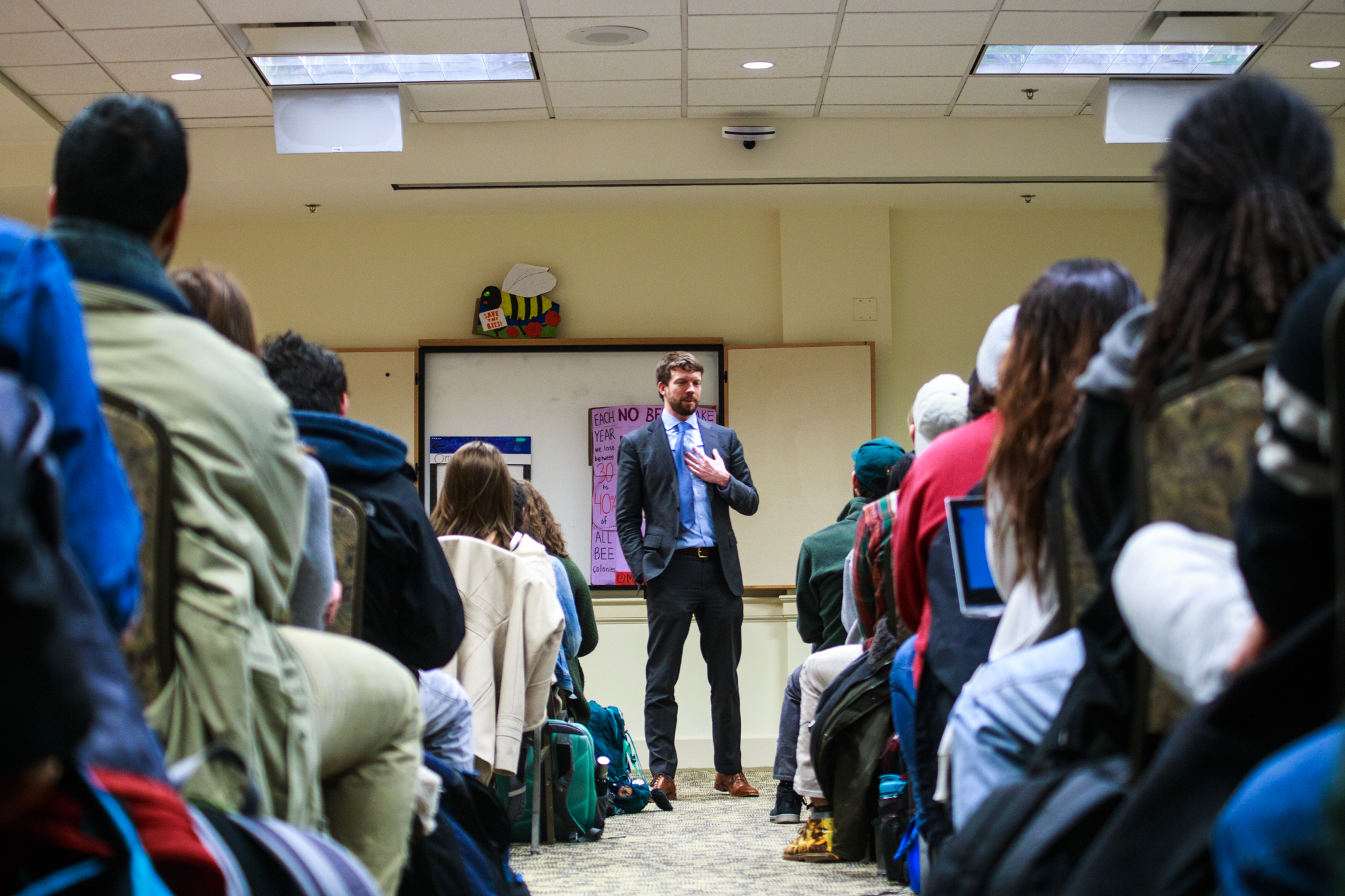Vote “no” on whether to allow MaryPIRG to receive a portion of the Student Activity Fee. Students should not be required to fund direct political advocacy and lobbying — no matter what the cause. This fundamental point seems to zoom right over the heads of the organization, as evidenced by the MaryPIRG petitioners in front of McKeldin Library or the guest column by activist Morgan Folger.
It matters not that the organization focuses on school affordability, student activism and the environment. You can agree with none, some or all of its goals. You can do the same with its methods. The point here is that this organization puts student money toward lobbying the government on a number of issues that Folger glowingly highlights.
The issue at hand is whether this university should be using a mandatory fee to help support political lobbying, especially considering that there is not unanimous agreement on the actions taken by this “nonpartisan” advocacy group. Making students fund a group that pursues actions they are opposed to reeks of a tyranny of the majority and frankly a violation of fundamental rights.
Forcing students to fund MaryPIRG — regardless of the dollar amount — could mean students will pay money to support a cause that they oppose. Take that “Clean Water rule” Folger mentioned in her column. It sounds great — let’s protect as many waterways as possible from evil polluters and landowners! In reality, though, the expanded interpretation destroyed the personal property rights of untold numbers of everyday Americans through “regulatory takings.” The Environmental Protection Agency could use the expanded rule to regulate just about anything, from a drainage ditch to a seasonal pond.
Under the expanded version — which MaryPIRG has consistently supported — “Waters of the United States” could cover just about every form of water in the country, even though the legislation (and common sense) clearly said otherwise. Remember, the Constitution limits the federal government to matters of interstate commerce and navigable waters.
There are pros and cons to the entire Clean Water Act and even this provision. People are entitled to whatever opinion they’d like on this issue or any other. But the fact remains that there is legitimate disagreement on this matter (among many others that MaryPIRG engages on). Sen. David Vitter (R-Louisiana) describes some of the serious property rights issues posed by the Clean Water Act and EPA as currently implemented. Don Corace, author of Government Pirates, details numerous abuses and “stretches” of the bill by the EPA including massive costs imposed on home and business owners related to temporary wetlands, drainage ditches and small streams.
The “Waters of the United States” definition as MaryPIRG envisions it is very problematic for a staunch property rights advocate like myself. Think of it as environmental eminent domain, just through regulation and without much judicial protection for property owners.
This is just one example of my personal disagreement with MaryPIRG. Yet if I want to go to the state’s best public university, I must pay to support a cause that I am very much opposed to. How is this fair to me and others like me?
Most of us support much of the work MaryPIRG does. MaryPIRG is free to ask those who support them for money — as it does already. But it is ridiculous and unjust to force all students attending a flagship university to pay for a cause they may or may not agree with under the guise of “it’s all for the students.”
Here’s a good example that should speak to all the Bernie Sanders supporters on the campus. Say I formed a group advocating lower taxes on businesses to drive economic growth and jobs that would ultimately benefit graduating students. Now imagine my group getting even a little bit of your student funding to lobby for lower taxes on businesses. Imagine the outrage! (And imagine if we started forming groups like this for every issue.)
To be clear, I don’t take issue with MaryPIRG’s existence, mission and specific lobbying efforts (even if I disagree with some of the latter). But I do oppose this group taking mandatory student funds and lobbying on behalf of students — even if students (like myself) don’t agree with their lobbying efforts.
It’s best if the group just finds its own sources of funding and leaves the rest of us out of it. Students should not be forced to fund a political advocacy group, no matter how small the cost or how “nonpartisan” it may be. Forget the useless SGA “election,” and just vote “no” on using student funding for political advocacy.
Matt Dragonette, opinion editor, is a senior accounting and government and politics major. He can be reached at mdragonettedbk@gmail.com.



